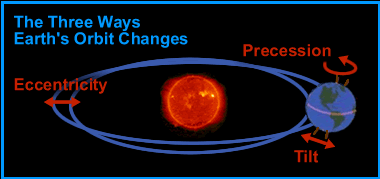The shape of Earth's orbit becomes more or less oval, Earth wobbles as it spins, and Earth's axis changes too. All these changes, over thousands of years, causes Earth's climate to change.
Click on image for full size
Windows to the Universe
How the Sun Affects Climate: Solar and Milankovitch Cycles
Energy from the
Sun keeps
Earth nice and warm. Sometimes Earth doesn't get
as much energy from the Sun. This happens either when the Sun is not as warm or
when the
Earth's
orbit changes.
Sometimes the Sun Changes!
When the Sun has fewer sunspots, it gives off less energy. That means that less
energy makes its way to Earth, and our planet cools down. Over time, scientists
have noticed a pattern in the number of sunspots. About every 11 years the number
of sunspots reaches a high and then decreases again.
Sometimes the Earth's Orbit Changes!
Over thousands of years, changes in Earth's orbit cause changes in the
amount of the Sun's energy that can get to the planet. These changes cause
global warming and cooling.
There are three ways that Earth's orbit changes over time.
- The shape of Earth's orbit around the Sun can become slightly more
and then less oval.
- Earth wobbles as it spins.
- The angle of the Earth's axis, its tilt, changes.
Once the Sun's energy reaches the Earth, several things can happen. The
energy can be absorbed by the planet, reflected back into space, or become trapped
in the atmosphere.
You might also be interested in:
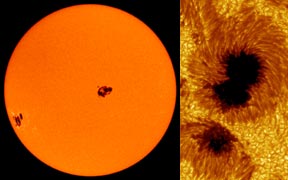
Sunspots are dark spots on the Sun. They may look small, but they are actually as bigas a planet like Earth or Mars! Sunspots are "dark" because they are colder than the areas around them. Of course, they
...more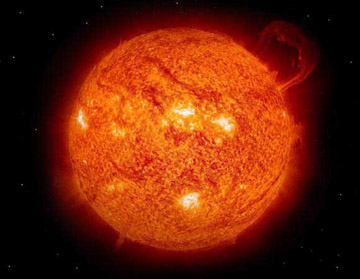
The Sun Climate can change if there is a change in the amount of solar energy that gets to Earth. A change in the solar cycle can impact climate. The effect is too small to be the reason that global warming
...more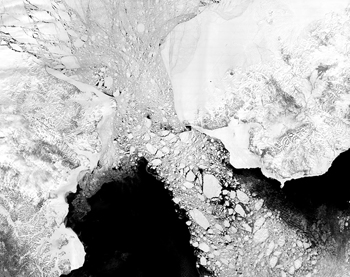
Sometimes, a small change in the Earth can lead to a big change in climate. A new study shows that changes in the Bering Strait might have affected ocean currents and climate worldwide thousands of years
...more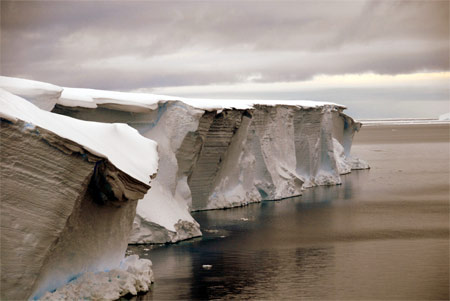
Looking for online content that can be used for a climate change education course or module? Pages linked below can be used to support an introductory climate change education for either a unit or a full
...more
Leaders from the countries of the world are heading to Copenhagen, Denmark in December 2009 to decide how the world will deal with climate change. They will make decisions about how to send less greenhouse
...more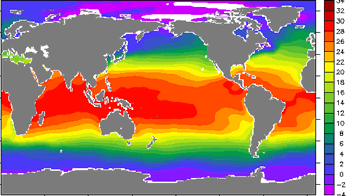
How do you know to pack your bathing suit and sunhat for a trip to a tropical island or pack warm sweaters and coats for a trip to Alaska? If you know a little about regional climates, then you know what
...more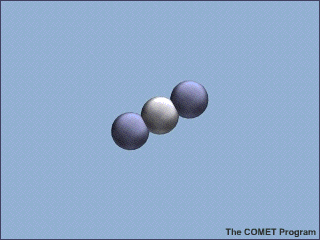
Only a tiny amount of the gases in Earth’s atmosphere are greenhouse gases. But they have a huge effect on climate. There are several different types of greenhouse gases, but they all have something in
...more


